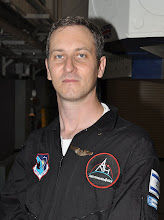As some may already know, my day-job is at a company called
Webroot Software, based in Boulder, Colorado. Apart from being a space-nut and budding runner, I am the manager of a development team working on the company consumer anti-malware set of products.
In the software industry like in the space industry there are launches. Usually software launches are much more frequent and take less to prepare for than space launches, especially compared to rocket launches when humans are on-board.
 |
| Webroot Internet Security Complete 2011 |
Over the past weekend we launched a set of products with more similarities to the space industry than other releases we've had in the past. This new version entails a new architecture, building on parts of the old architecture and technologies while learning lessons from prior products. Kind of like the next step in human space exploration, it took us longer than expected (close to two years, much longer than we originally expected and longer than usual software release cycles of products this size), went over budget, incorporated third party sub-contractors who delivered varying levels of responsiveness and initial quality and all that during what will not be known as the best two years in the history of U.S. economy.
I guess it is no surprise, then, that I feel great satisfaction and at the same time the concern of rocket designers when their rocket is making its first few full launches rather than static or partial tests (in the software industry we call these "betas").
Like space-access systems, maybe even more so in software, there are always patches and improvements and more to be developed, but the initial launch occurred. As of now the rocket didn't explode on the pad, always a good sign. Unlike a rocket (at least with current low-Earth-orbit launches), though, knowing nothing major went wrong may take a week or two, but so far reports are looking good - it feels like a successful launch.


 Space Shuttle Launch Poll Results
Space Shuttle Launch Poll Results












1 comment:
I would really be terrific if you could say what sort of materials you work with, would they be easily reproduced 'in situation' and could they be? Can the hexadecimal be configured to algorythyms based on orbit paths and could you give an accurate list of element material weights, power distribution and 'Earth planet' average life espectancy...
Norman...
Post a Comment